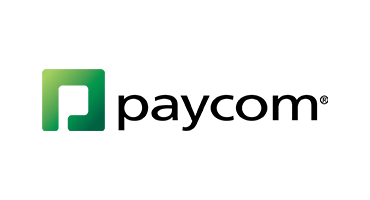Ask anyone—or even ChatGPT—to describe the typical board member, and the likely answer would be someone over the age of 50 with an extensive résumé and perhaps some C-suite experience.
That answer isn’t wrong, but it isn’t the only criteria to make someone a successful director. Some organizations are now tapping members of Generation Z, generally defined as those born around 1997 or later, to take a seat in the boardroom.
“One thing for sure is that I am always the youngest person by a factor of many years,” says Madeline Lawrence, 25, an investor at Peak in Berlin. The average age of a board member is 51.9 years old, according to a report from career intelligence platform Zippia—twice Lawrence’s age.
Lawrence is a director on the boards of Circula, an employee finance platform for managing expenses and corporate benefits; Tilores, a data organization software company; and Bling, a financial literacy app including a payment card for kids that parents can manage.
While the three companies offer products that can be used by customers of all ages, Lawrence says part of her job as a director is to provide input on “anything that touches a human face.”
“These are products that are used by me and people I know,” she says.
Megan Wang, CEO of online talent marketplace TheBoardlist, tells Fortune she is seeing an increase in the number of posts on the site that are open to first-time directors “who can address very specific gaps in skills or expertise on the board.”
“Speaking to your experience is not just about reading from a linear history of your work résumé. It’s about summarizing your high-level experience functionally, by industry and other areas of expertise, and how it might uniquely serve the board,” Wang notes.
Rebecca Wood, 25, was appointed last year as the youngest ever board member for the Giants, an English professional rugby league club in Huddersfield, West Yorkshire. Wood, who is a chartered tax advisor at an accountancy firm, says she has been attending matches her entire life, and has only missed a handful of games since she became a die-hard Giants fan around age 13.
As a familiar face in the stands, Wood became acquainted with the existing directors, finance and commercial teams, sponsors, coaching staff, and players. When the board was searching for a new director, her name was at the top of the list.
“The chairman asked to catch up with me after one of the games and asked if I would be interested in joining the board,” she explains. “We then had a separate meeting to discuss this further and what the expectations may be, and what I could bring to the role.”
When announcing Wood’s appointment, Giants chairman Keith Hellawell noted how her age would prove a massive benefit to the club.
“No one can doubt her passion for the club, and if our club is to succeed longer term we need younger people, fresher perspectives, and a recognition of the society that we now live in,” Hellawell said in a news release.
While Wood’s appointment is the continuation of a lifelong passion, some other people serving on their first boards see it as an opportunity to network, give back, and advance their careers.
Earlier this year, Ross O’Leary, 27, a senior account manager at Beachhut PR, joined the board of Blockchain Ireland, an industry network dedicated to promoting Ireland as a blockchain and Web3 hub.
“A person I worked for a few years ago gave me good advice, saying that the earlier you can get onto a board, the better,” O’Leary recalls. ”Ever since then, it has always been something in my head that I have wanted to do.”
O’Leary notes his duties as a director take up approximately four hours per week. While he is the youngest person on the board, he says his public relations experience perfectly complements the mix of skills that other directors bring to the table.
“It is important for industries as a whole to have younger voices at the table, because we have a unique perspective, especially when it comes to industries that are engaged with young people,” he says. “They get more out of me the more they let me throw my hat in the ring.”
While Generation Z brings a unique perspective and set of experiences to the table, Lawrence says there are times she has to remind herself that just because someone is older and perhaps has more work experience, it doesn’t necessarily mean they have the answer.
“Once you get a seat, the founder may ask a question, and there’s silence. It’s easy to think the guy next to me knows better—and it probably is a guy—and then they say the same thing you were thinking,” she says. “It’s sort of an impostor syndrome.”
Wang says she hopes that more companies will consider the potential benefits of appointing a Gen Z director. While there isn’t any significant data available on the number of twentysomethings in the boardroom, there is an increase in younger directors. Spencer Stuart’s 2022 S&P 500 New Director Snapshot discussed the “rise of the next generation,” defining the next generation of directors as 50 and younger. According to the report, 18% of the incoming class of new directors last year were under 50, an increase from 16% in 2021.
For boards considering tapping into a younger talent pool, Wang offers some advice.
“Your directors want to be heard and listened to—ultimately that’s why you brought them onto the board in the first place,” she says. “But this generation especially values a specific way of working collaboratively and with mutual respect.”
Credit: Source link











